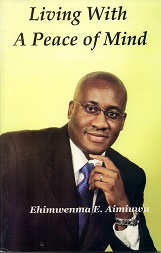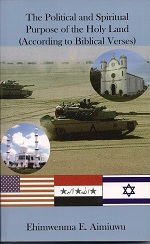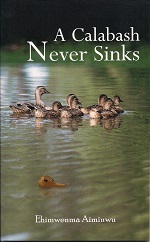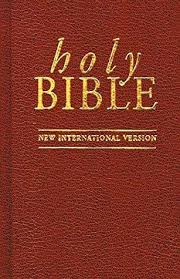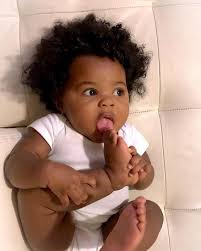Blood ran in the streets as British soldiers mowed down the city’s defenders, and a desperate king slaughtered hundreds of his subjects hoping to appease the gods.
That was in 1897. A century later, Benin City is still nicknamed “City of Blood,” yet it is a remarkable haven of tranquility in a modern Nigeria exploding with tangled regional, ethnic and religious hostilities. Traditional Nigerian rivalries – northerner vs. southerner, Muslim vs. Christian, Hausa vs. Yoruba – all exist in microcosm in this southern city of 500,000 people. But so far, it has avoided the conflagrations that periodically flare up across the country.
Violence has killed thousands since President Olusegun Obasanjo was elected last year and replaced a military junta with democratic rule. The latest round of bloodletting, touched off by plans to implement Islamic law in some states, caused up to 2,000 deaths in February and March. A flare up May 21-22 in the northern town of Kaduna took 200-300 lives.
Benin City has remained an island of calm.
“We are no longer a city of blood. It is safer here than the Bank of England,” Idris Sanni, a prominent Muslim and ethnic Hausa community leader, says with a chuckle. Crowded, feverishly hot and polluted, Benin City is no paradise. Like the rest of Nigeria, most of the city’s residents are miserably poor and petty crime is rife in the crowded ghettos of rusted aluminum and shapeless tone. Unlike in other parts of southern Nigeria, there is no oil wealth or industry to speak of and the economy depends on an inefficient, underfinanced civil service.
Potential tourist attractions lie neglected – a 600-year-old moat is filled with garbage and a crumbling wall that was once the world’s second longest is in ruins. Benin City rarely makes Nigerian news except as the well-known hub of an international prostitution ring. But while personal differences often escalate into communal feuding elsewhere, Benin City’s religious and ethnic leaders emphasize what they have in common. “Both the Bible and the Koran teach us that ‘thou shalt not kill,'” says Sanni, whose Muslim community group recently sent several emissaries on a peace mission through northern Nigeria. “We are lucky to be in a city where most people believe they should not kill.”
Many observers credit the city’s majority Bini tribe, which once ruled over a Benin empire stretching hundreds of miles to the east and west, for maintaining ethnic and religious stability. The empire, which was dismantled by British colonizers in the late 19th century, has no relation to the modern country of Benin, west of Nigeria. The Bini are a distinct but minor ethnic group outside Benin City, where the Yoruba, Igbo and Hausa peoples dominate. Inside the city, however, they are a majority.
The Bini king, 76-year-old N’Edo Erediauwa, whose ancestors periodically slit the throats of subjects as sacrifices to the gods, today has a reputation as a peacemaker. He frequently goes on state radio to make long addresses about the need for peace and holds court with community leaders to prevent quarrels from escalating into bitter feuds.
When a Hausa man murdered the younger sister of the Bini high priest several years ago, the royal family called for calm and urged Bini subjects not to seek revenge. “Under no circumstance do we want violence to destroy us like other Nigerian cities,” the priest, Nasakhare Isekhure, says.
The word of the king, or “oba,” is law for most people here. He lives in a sprawling mud and log palace that is Benin City’s biggest building and he is revered by followers as a demigod. Local Muslim and Christian leaders regularly pay homage to the oba for his influential advisory role in the Edo state government and in recognition that many Christians and Muslims also believe in Bini mysticism and the oba’s spiritual powers.
The terrible times that gave the city its chilling nickname aren’t forgotten. In fact, Nigeria’s modern divisions often seem overshadowed here by the destruction of the 1897 British invasion. It was a time, a British army officer recounted, when “Benin ran with blood. Human sacrifices were everywhere.”
Traditional leaders emphasize that dark period history as a lesson of the perils of domination by outsiders. Even now, most of the city’s priceless centuries-old bronze artifacts are in museums in London and New York after being plundered by the British.
“The Bini have managed to forge a strong sense of identity out of the humiliation they endured,” says Musa Abutudu, a political science lecturer at the University of Benin. “They have used this identity to help keep the peace under Nigerian rule. Perhaps other Nigerians could learn from this.”

